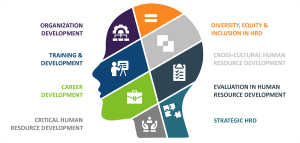By Shameen Prashantham*
Even before the Covid pandemic changed our lives in the way that it has, business leaders were gravitating to the view that their organizations had an important role to play in addressing societal challenges facing the world, as evident from the 2019 statement from Business Roundtable asserting that the purpose of business was to serve all stakeholders.
This broader view of the role of business is consistent with the growing recognition that businesses have an important role to play in contributing to the Sustainable Development Goals (SDGs), arguably the most coherent expression of a global agenda to promote societal wellbeing. Moreover, the pandemic appears to have deepened the strong yearning of business professionals to lead meaningful lives with a purpose that transcends the narrow pursuit of profit.
Non-traditional allies with complementary capabilities – such as corporations and startups — are well placed to generate solutions that have both an economic payoff and social impact.
Doing so calls for three mindsets – and board members in both large corporations and startups would do well to foster and affirm their importance.
Entrepreneurial mindset – Making things happen
An important starting point is an entrepreneurial mindset which entails three key factors: proactiveness, innovativeness and risk-taking. Proactiveness is evident in the recognition of potential win-wins in working with startups. Innovativeness can be seen in the creative efforts through which entrepreneurs incorporate startup engagement; out of the box thinking can help save time and resources. Finally, there is an inevitable element of risk involved in embarking on startup partnering. Risks can be mitigated by starting small and under the radar, working hard to create quick wins, especially in the early stages, and enlisting support from formal and informal partners. A key message here is that the impetus to engage with external startups can’t always be expected to come from on high. In fact, in numerous instances that I’ve studied, the driving force has been individual managers, often without a fancy job title or any mention of being entrepreneurial in their job description, that were the catalyst of startup partnering in their company.
Collaborative mindset – Joining forces with others
Another important mindset that companies need is a collaborative mindset. My research reveals three important aspects of this mindset: leveraging networks proactively, discerningly and reflectively. Leveraging networks proactively in relation to HOW goes beyond merely recognizing the WHY, and is reflected in the three-fold partnering process described in this book, which entails synergy clarification, interface creation and exemplar cultivation. Leveraging networks discerningly – in terms of understanding which startups are more suitable than others – is inherent in making choices of about who to engage with, how, and to what extent? Finally, in terms of leveraging network reflectively, learning from startups is important in terms of identifying and cultivating certain success stories (the exemplars), and gaining feedback from startups in terms of how to enhance the partnering process.
Global mindset – Engaging with the world
A global mindset entails curiosity, competence and connections. Curiosity is the basis for exploring novel technologies and ideas in other geographic contexts. Competence – particularly in terms of partnering capability – is an important basis for startup partnering globally, but there is also a need for cross-cultural competence to deal with both internal managers and external startups in entrepreneurial ecosystems in varied locations. An important manifestation is learning to adapt to other conditions. Connections can help to enrich the corporate-startup partnering experience for both parties. For instance, startup-partners’ own global expansion can be enhanced and the global startup partnering capability of the corporation strengthened, thus adding to value co-creation through corporate-startup partnering.
In a world where covid-related restrictions has curtailed international travel, and geopolitical tensions prevail, it may seem that globalization is losing steam – and consequently that a global mindset is not as relevant as it used to be. And yet the SDGs represent a global agenda which calls for the efforts of all nations, especially with regard to challenges such as the climate crisis (SDG 13). Thus globally minded corporations and startups have a vital role to play in forging effective collaborations around the world.
To illustrate, the digital health startup, mPharma, embodies all three mindsets – entrepreneurial, collaborative and global – and has looked for inspiration and input from around the world. Its founders came up with the idea in the US, gained support from the Israel ecosystem, and launched the company in Ghana. During the pandemic, a board member with ties to Silicon Valley and networks around the world helped mPharma connect with a supplier in China that could provide affordable equipment to support its diagnostic efforts which proved to be extremely timely in meeting the large demand for Covid-19 testing. A company like this is poised to continue contributing to SDG 3 (good health and well-being) in Africa and beyond.
Indeed, the last of the Goals, SDG 17 – partnerships for the goals – ought to be construed not merely as the collaboration of non-market actors such as government and civil society, but also, my research suggests, market actors including large corporations and smaller startups. As a world battered by Covid-19 grapples with addressing the SDGs in the lead up to 2030, it can do with all the ingenuity and creativity it can harness from high-quality startups as they dance with gorillas. Entrepreneurial, collaborative and global mindsets will be especially important in making this happen.
*Shameen Prashantham, the author of Gorillas can Dance: Lessons from Microsoft and Other Corporations on Partnering with Startups, is Professor of International Business & Strategy, and Associate Dean (MBA), at China Europe International Business School in Shanghai, China. For more information click here.

Recognising excellence across the Asian Pacific.
Nominate now ➜
Read the latest and past issues of APAC Insider.
Explore issues ➜
Find out how we can help your business grow.
Find out more ➜




















